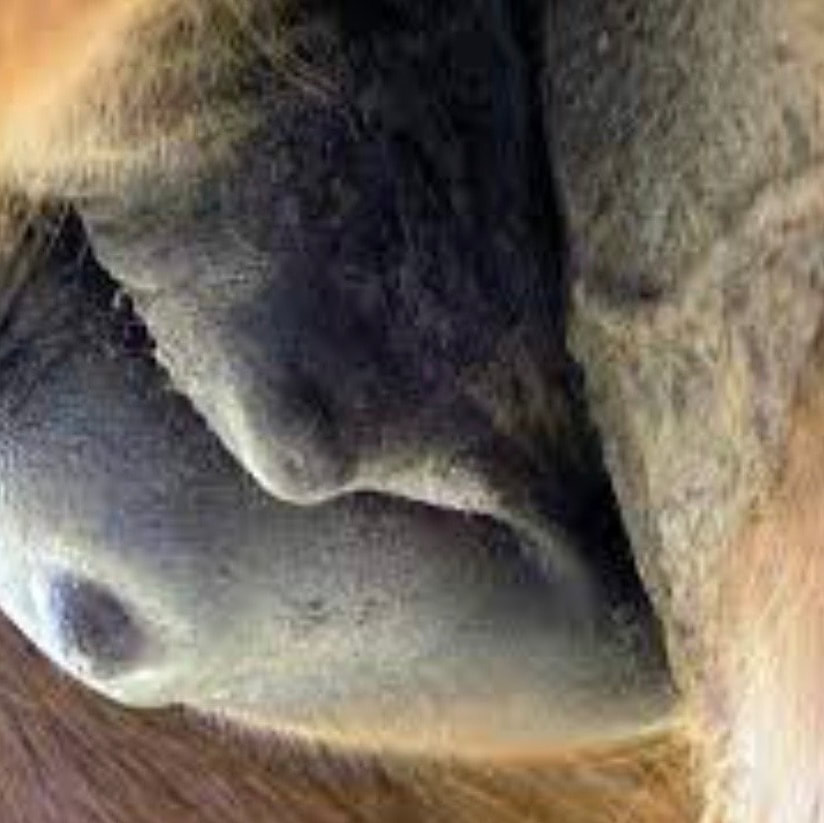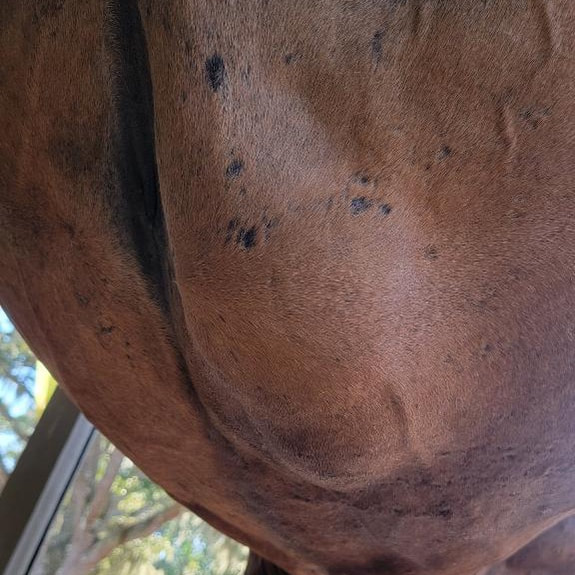|
Mastitis is inflammation of the mammary glands and is usually a result of an infection. Bacterial infections are the most common cause, but fungal infections and parasites can lead to mastitis as well. Mastitis can occur in any mare but is more common in those who are lactating. Signs of mastitis include pain and swelling of the udder, edema under the belly, thick and fowl smelling discharge from the teat or teats and biting or kicking at their foal when it tries to nurse. If the infection spreads outside of the udder and become systemic, the mare will also have an elevated temperature. It is recommended to culture the discharge and do an antibiotic sensitivity test to ensure that the mare is treated with the correct antibiotics. The majority of cases are caused by Streptococci species, but it can be cause by over 20 different types of bacteria. Treatment should include systemic and intramammary antibiotics and many causes respond well to penicillin. Bovine intramammary antibiotics (Today and Tomorrow are two examples) can be administered directly into the teat to increase local concentric of antibiotics in the udder. If the udder is hard and painful, milking the mare can relive that pressure. Massage therapy ands hydrotherapy can help mobilize and reduce edema. Non-steroidal anti-inflammatories (bute) can help reduce pain, swelling and reduce a fever. Always consult with your veterinarian when mastitis occurs. Interested in learning more about Equine First Aid? Check out our online certification course!
0 Comments
Leave a Reply. |
AuthorDr. Angelique Barbara is the founder of Angel's Animals LLC, a company that has developed online animal bodywork courses for both owners and professionals. Dr. Barbara's unique teaching style along with the dynamic layout of the courses allows people of different educational backgrounds from all over the world to benefit from her knowledge. Archives
May 2024
Categories
All
|



 RSS Feed
RSS Feed